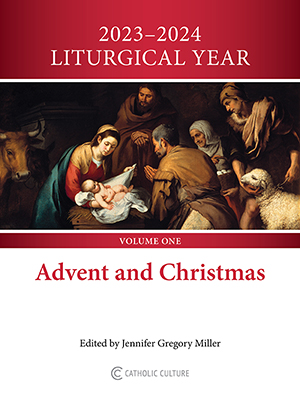Catholic World News News Feature
Cardinal Ratzinger Explains Purification of Memory March 07, 2000
VATICAN (CWNews.com) -- At a press conference in Rome on March 7, Cardinal Joseph Ratzinger briefed reporters on the new document entitled Memory and Reconciliation: The Church and the Faults of the Past. That document, prepared under his editorial direction by the International Theological Commission, is designed as an explanation of the appeal for pardon which Pope John Paul II will make on March 12.
"The Church of today cannot serve as a tribunal to judge the Church of the past," Cardinal Ratzinger observed. "But we can seek to 'do' the truth-- that is, we can not deny the faults of the past-- while at the same time we will not adopt a stance of false humility, and acknowledge errors which have not been demonstrated historically."
The Christian world can never deny that the sins of individual sinners wound the entire Church, the cardinal observed. He recalled the words of Cardinal Consalvi, when he was informed that Napoleon wanted to destroy the Church. "He will never succeed," Cardinal Consalvi said; "We have not managed to do it ourselves!"
The document produced by the International Theological Commission, Memory and Reconciliation, was released in French on March 1. The document notes that the "purification of memory is an act of courage and humility," and predicts that the Church will see an "increased credibility of ecclesial pronouncements" as the world recognizes the virtue of the confession of pardon.
At the same time, Memory and Reconciliation concedes that there have been "expressions of unease" among many Catholics because of what " may look like acquiescence in the face of accusations made by those prejudicially hostile to the Church." And the International Theological Commission also notes that there are " no precedents for requests for forgiveness by the magisterium for past wrongs."
Still, the document cites areas in which the history of the Church has clearly been marked by error. These include:
First, the division of Christianity. In that process-- both at the time of the Great Schism and later during the Reformation-- the document notes that a "lack of supernatural love, of 'agape', seems to have been common to both the breaches.
Second, the use of force in the service of truth. At times, such as during the Inquisition, Church leaders wrongfully used violence and compulsion against dissidents, thus violating the principle of religious freedom.
Third, the relationship between Christians and Jews. While noting that the Holocaust "was certainly the result of the pagan ideology that was Nazism," the document concedes: "it may be asked whether the Nazi persecution of the Jews was not made easier by the anti-Jewish prejudices imbedded in some Christian minds and hearts."
Fourth, the evils of the current day. Memory and Reconciliation asks whether the Church has done enough to stop "the denial of the right to life of the unborn child sanctioned in pro-abortion legislation, and a great indifference to the cry of the poor in entire sectors of the human family."







